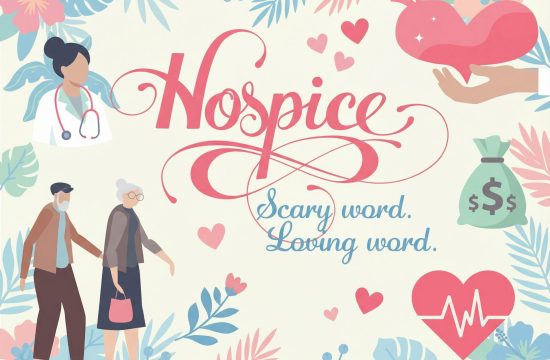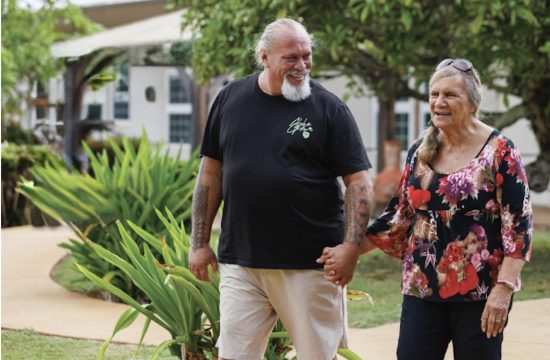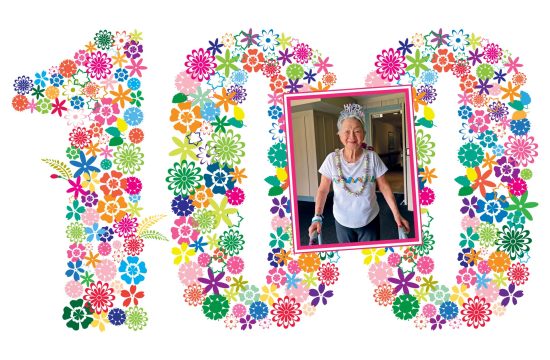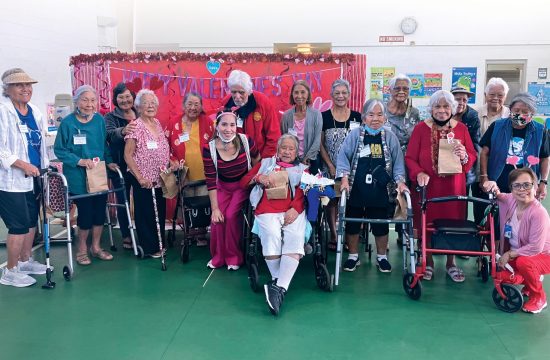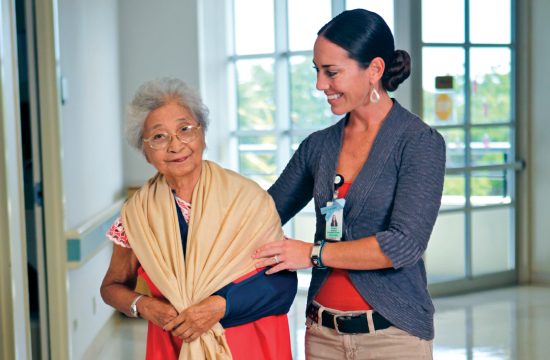“I first started in the Wilcox ER on February 1, 1972. Do the math and you’ll see that it’s been a 50-year run. And the math also shows that I’m 50 years older. Being able to keep up with the challenging ER pace has become difficult for me. The good news for Kauai is that there are some excellent young ER doctors on board and the Wilcox Hospital ER is in top-notch hands. Good news for me personally is that the position of Medical Director at Kauai Hospice recently opened up. I’m not yet ready to stop being a physician, and with the overall pace of work being less hectic, this presents a very fortunate opportunity for me to still use my medical knowledge and experience. I’m certainly having to reboot a bit and to learn some different skills and processes. Fortunately, I’m entering an outstanding organization that my predecessors and future Hospice colleagues have established, and they already have it running smoothly. Systems and protocols are all in place. I very much hope that I will be worthy and that I can help keep Kauai Hospice functioning well in the very important community niche that it addresses. You don’t do anything for 50 years without thinking back to some things you wish you’d done better. To anyone that I caused harm, I am very sorry. To any of you whom I helped one way or another, I am very blessed to have had the opportunity to meet you and help you. Onward and forward.”
Monty Downs, M.D.
- What drew you to hospice work in the first place?
I have always enjoyed elderly people, and I’ve always enjoyed trying to help them with their challenges. Not every patient in Kauai Hospice is elderly but they all do have serious and by definition, incurable medical challenges and conditions. In the ER, where I worked for 50 years, we can often get seriously ill people through their illness, and that is spectacular. Patients in Hospice, however, have an illness that can’t be cured. Working with people in these situations can still be very helpful to them, and satisfying to us, as we help them live their life as comfortably and meaningfully as possible.
- What is it about Kauai Hospice that you find so important?
Kauai Hospice is important because our staff has access to medications and equipment that can help people live with their life-threatening, incurable illness comfortably and meaningfully in their home, and not in a hospital bed with “needles and tubes in every orifice.” Our goal is to make life worth living even though you are in the near-end-of-life part of your life.
3.Do you think end-of-life care is part of the broader discussion going on about health care reform in this country?
End-of-life care certainly is part of the broader discussion regarding health care reform in this country. There are different numbers out there, but I’ve seen it estimated that up to 25% of the United States’ total medical expenses are spent in peoples’ last year of life. Doctors and hospitals do amazing high tech things and use remarkable high tech medications that may increase someone’s life span by a few weeks even when someone has an incurable illness. But the administration and side effects of those medications may make those few weeks be very uncomfortable.
The concept of Hospice Care, whose emphasis is system management and comfort more so than possibly adding on a few weeks of life by undergoing intense and often uncomfortable treatments makes a lot of financial sense as our society tries to gain a handle on medical expenses that threaten to “break the bank.” Ironically, it’s been found that when comfort is achieved, people with certain conditions actually live a few weeks longer than people who are being subjected to the most modern, and often uncomfortable, treatments!
Please understand, however, that we’re not talking about curable conditions. Infections and trauma and such. And in fact, nowadays many cancers are curable because of our great scientific advancements. But for those cancers and other conditions that aren’t curable — and most doctors are aware of when this is the case — I’ll reiterate and say that effective palliative care (pain control, nausea control, spiritual support, family home support, etc.) can be at least as life-prolonging as the most advanced medicinal agents.
- What are your day-to-day duties as the Kauai Hospice Medical Director?
My day-to-day duties as Hospice Medical Director includes a considerable amount of paperwork and computer work, since Hospice programs have to properly document to Medicare that our patients are not expected to live longer than 6 months from the time they were admitted to Hospice. (If they are expected to live a long time, Medicare understandably won’t cover any Hospice expenses. And I need to note that some people defy expectations and do live considerably longer than 6 months — and in these scenarios we have to keep re-certifying that their life expectancy remains at less than 6 months. We see this happen when people are receiving meticulous home care from family members).
My day also includes working with our most phenomenal and loving staff of 20 people. We have a lot more staff meetings, formal and informal, reviewing our patients and their needs, than is typical for most other medical specialties. It turns out this is very important and very helpful, since there is no doubt that our work could lead to our own depression as we see our patients die under our care, as they inevitably will.
My favorite part of my work is accompanying our nurses and social workers and chaplains when they make their home visits. I love learning about our patients, learning about what lives they’ve led, what they looked like in their old family photos, who their family members are, etc.
“We are thrilled and blessed that Dr. Monty Downs is part of our team. He’s not just a remarkable physician who has whole heartedly served patients and our community-at-large for over 50 years, he represents the most important qualities of a hospice medical director – a commitment to excellent end-of-life care with dignity and compassion. His unique guitar/harmonica skills at the bedside will be an added bonus for our patients and families.”
Tricia Yamashita,
Executive Director
Kaua`i Hospice, Inc.
“Dying is a great mystery for all of us, similar to the mystery of who or what we were before we were born. Yes, the mystery can be frightening, but having the time and comfort to process and consider the mystery can actually be a very rewarding time in our lives. “A time for consolidating our love” is how one person/patient recently expressed it.”
Monty Downs, MD


